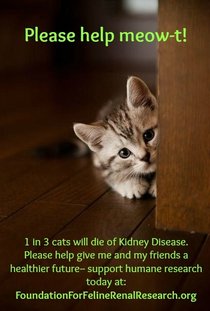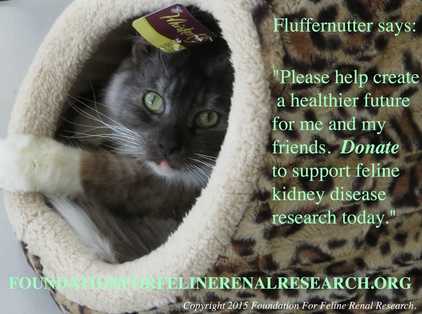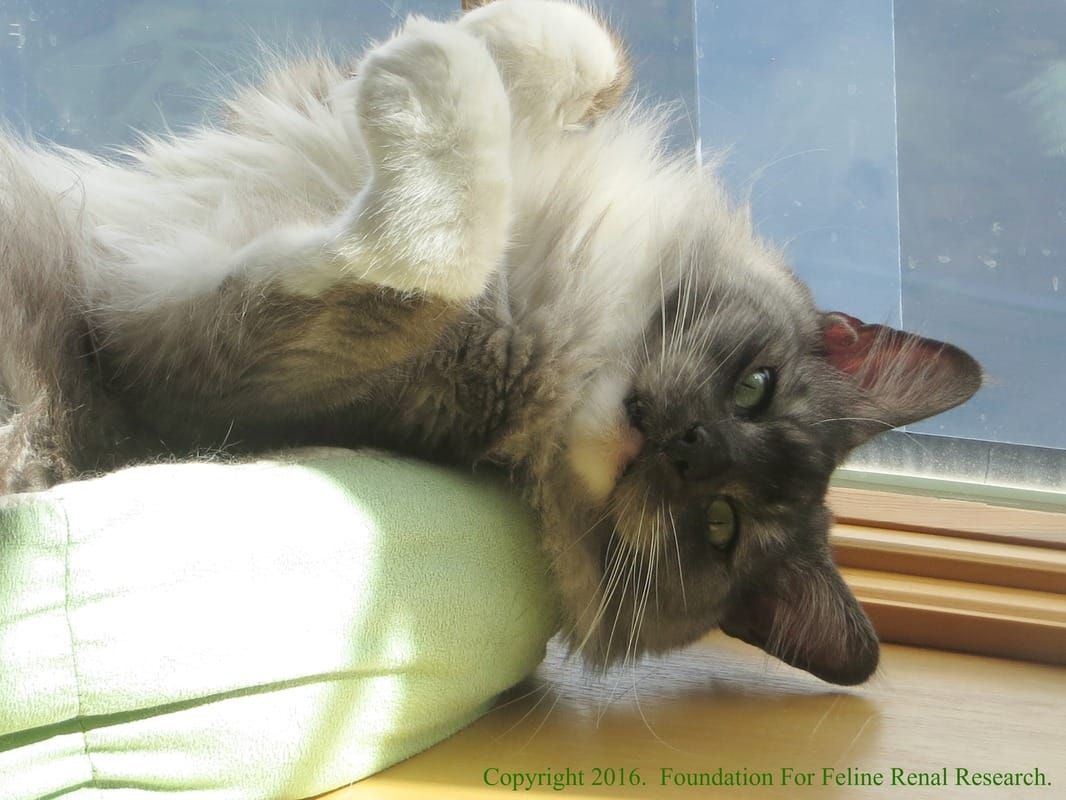Despite the importance of blood pressure monitoring, pressure checks are still not routine in veterinary practice. You may be told that it's impossible to get accurate blood pressure measurements in cats, because the test causes stress, which in turn, elevates blood pressure--a phenomenon known as "white coat syndrome". This may occur; however, individual blood pressure measurements are not valuable just as stand-alone tests. It's important to get baseline measurements, and then continue checking the pressure at regular intervals to spot trends over time. Even if the measurements are falsely elevated due to stress, measurements that continue to increase over time could be indicative of developing or progressing hypertension.
Although it’s common for cats to experience stress during the test, there are some ways to help reduce the stress your cat experiences. Here are some tips from one of our supporters, Susan, whose cat Zach had hypertension and CKD, and had his blood pressure checked every three months:
"Take a towel or blanket to the vet; it smells like home, and cushions the exam table. Ask that the blood pressure check be done in the exam room, let the cat lie on the blanket/towel, and while the pressure check is being performed, stay close to your cat and gently rub the ears, cheeks, and under the chin."
Susan reports that Zach actually fell asleep once during a blood pressure check, and that his vet now follows this procedure for pressure checks on all patients.
And, Carol, who's cat Emma had CKD said:
"Emma tolerates (blood pressure readings) pretty well. We go in early so she can get used to the room. She gets treats, scratches and praise, and is getting used to it; I think not giving up is the key."
Here are some reliable resources to help you and your vet learn more about Feline Hypertension, and techniques for getting accurate measurements:
"ISFM Consensus Guidelines on the Diagnosis and Management of Feline Hypertension"
ISFM has released excellent new, comprehensive guidelines, aimed primarily at veterinarians, on the diagnosis and treatment of Feline Hypertension. Dr. Rosanne Jepson, BVSc, MVetMed, PhD, DipACVIM, DipECVIM, FHEA, MRCVS. a leader in the field, and the Principal Investigator on the study we're currently supporting, is one of the experts who drafted the guidelines.
"Indirect Blood Pressure Measurement"
You can learn more about noninvasive methods of obtaining accurate blood pressure readings in companion animals from this article by Clinician's Brief (free subscription required).
"Which Drugs Can Control Systemic Arterial Hypertension in Dogs and Cats?"
If hypertension is discovered, there are some medications that may be appropriate. Cats have a unique biochemistry; some drugs can be harmful to cats, and extra care must be taken in cats with Chronic Kidney Disease. Vets, this article from Clinician's Brief about blood pressure medications includes cautionary notes for treating animals with Chronic Kidney Disease (free subscription required).
We hope that by spreading the word, and urging people to ask for the testing as part of their cats' wellness care, it will become more routinely available. Getting accurate blood pressure readings can be challenging, but the results can be invaluable. If you haven't already, please speak with your vet about measuring your cat's blood pressure.
Vets and cat companions, have you had success measuring cats' blood pressure? If so, please share.

If you like what we do, please remember that we can't do it without YOU! Please help give cats a healthier future by making a donation to support groundbreaking Feline CKD research.
Thank you.


 RSS Feed
RSS Feed


